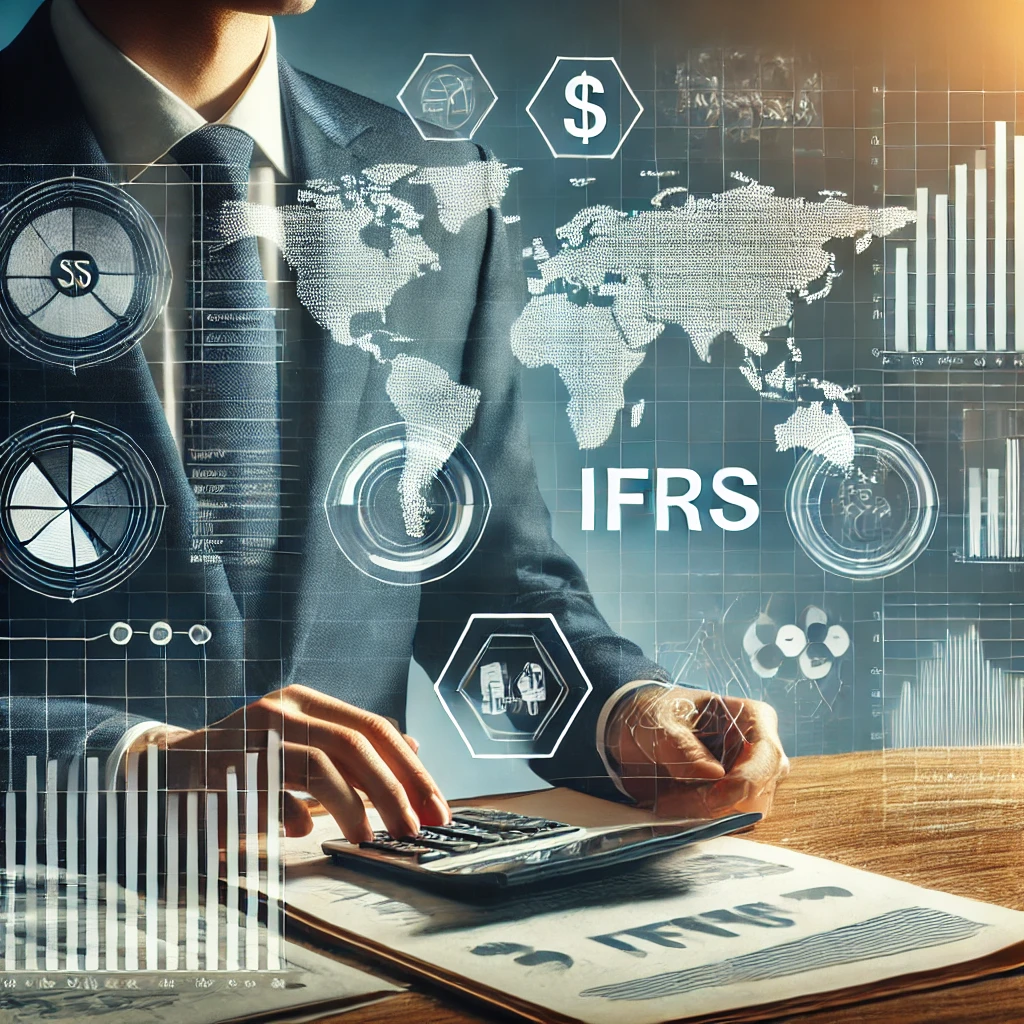
The financial reporting landscape is constantly evolving to reflect the dynamic nature of global markets. International Financial Reporting Standards (IFRS) serve as the cornerstone for financial transparency and comparability worldwide. In recent years, the IFRS Foundation has introduced significant updates aimed at addressing emerging challenges and aligning with the realities of modern business. In this article, we decode the latest developments in IFRS, their implications, and how businesses can navigate these changes effectively.
The Importance of Staying Updated with IFRS
IFRS provides a global framework for financial reporting, enhancing transparency and comparability across jurisdictions. Over 140 countries and jurisdictions have adopted IFRS, making it the de facto standard for multinational organizations. Given its global reach, staying abreast of IFRS updates is not just a compliance requirement but a strategic necessity for businesses looking to maintain investor confidence and operational efficiency.
Key Updates in IFRS and Their Implications
1. IFRS 17: Insurance Contracts
Effective Date: January 1, 2023
IFRS 17 replaces IFRS 4 and establishes principles for the recognition, measurement, presentation, and disclosure of insurance contracts. It introduces a consistent approach to accounting for insurance liabilities, enhancing comparability across entities.
Key Changes:
- Introduction of the General Measurement Model (GMM) for long-term contracts.
- Simplified approaches for short-term contracts and variable fee contracts.
- Enhanced disclosure requirements.
Impact: Insurers face significant challenges in transitioning to IFRS 17, including updates to actuarial models, IT systems, and data processes. While the standard demands upfront investment, it offers long-term benefits in improved financial clarity and stakeholder confidence.
2. IFRS Sustainability Disclosure Standards
Context: The IFRS Foundation launched the International Sustainability Standards Board (ISSB) to address the growing demand for sustainability disclosures.
Key Developments:
- IFRS S1: General Requirements for Sustainability-Related Financial Disclosures.
- IFRS S2: Climate-Related Disclosures.
These standards align with existing frameworks such as the Task Force on Climate-Related Financial Disclosures (TCFD).
Impact: Organizations need to integrate sustainability metrics into their financial reporting processes. This shift requires cross-functional collaboration between finance, sustainability, and operations teams to ensure comprehensive and reliable disclosures.
3. IFRS 16 Amendments: Lease Accounting
Effective Date: April 1, 2024
The COVID-19 pandemic prompted temporary relief measures under IFRS 16. Recent amendments extend these measures, allowing lessees to account for rent concessions as variable lease payments.
Key Changes:
- Extended scope of rent concession relief.
- Simplified disclosure requirements for affected entities.
Impact: Lessees benefit from reduced administrative burden during challenging times. However, businesses must still ensure accurate documentation and transparent communication with stakeholders.
4. Proposed Changes to IAS 12: Deferred Tax on Leases
The IASB proposed amendments to IAS 12 to address deferred tax accounting issues arising from IFRS 16 leases and IFRS 9 financial instruments.
Key Changes:
- Narrow-scope amendments to address inconsistencies in deferred tax accounting.
- Enhanced guidance on uncertain tax treatments.
Impact: These changes aim to reduce diversity in practice and ensure more consistent application of deferred tax principles. Businesses must revisit their tax reporting processes and align them with the new requirements.
Challenges and Opportunities
Challenges
- Complexity in Implementation: Adapting to new IFRS standards requires significant effort, from understanding technical details to redesigning systems and processes.
- Resource Constraints: Smaller organizations may face resource limitations, particularly in terms of expertise and technology.
- Stakeholder Communication: Effective communication of changes to investors, regulators, and other stakeholders is essential to maintain trust and compliance.
Opportunities
- Enhanced Transparency: The updates aim to improve the quality and comparability of financial reporting, fostering greater investor confidence.
- Strategic Insights: IFRS updates provide an opportunity for businesses to revisit their financial strategies and align them with global best practices.
- Sustainability Integration: With the rise of sustainability disclosures, organizations can enhance their value proposition by showcasing their commitment to ESG (Environmental, Social, and Governance) principles.
Steps to Prepare for IFRS Updates
1. Stay Informed
Regularly monitor updates from the IFRS Foundation and IASB. Subscribe to newsletters and participate in webinars to stay ahead of the curve.
2. Conduct Impact Assessments
Evaluate how each update affects your organization’s financial statements, systems, and processes. Develop a roadmap for implementation.
3. Invest in Training
Ensure your finance team is equipped with the knowledge and skills to interpret and apply new standards effectively. Consider engaging external consultants if necessary.
4. Leverage Technology
Modern financial reporting tools can streamline compliance efforts. Automation and data analytics can play a crucial role in managing complex reporting requirements.
5. Engage Stakeholders
Proactively communicate with internal and external stakeholders about the implications of IFRS updates. Transparent dialogue builds trust and ensures alignment.
Conclusion
The latest updates in IFRS reflect the evolving needs of a complex global economy. While the changes present challenges, they also open doors to improved financial clarity, stakeholder trust, and sustainable growth. By staying informed, investing in training and technology, and fostering stakeholder collaboration, businesses can navigate the shifting IFRS landscape with confidence.
For businesses aiming to maintain a competitive edge, the ability to adapt to these updates is not just a regulatory requirement—it is a hallmark of resilience and forward-thinking leadership.
#IFRSUpdates #FinancialReporting #IFRS17 #SustainabilityReporting #LeaseAccounting #IAS12 #AccountingStandards #GlobalCompliance #FinancialTransparency #MavinsInsights
